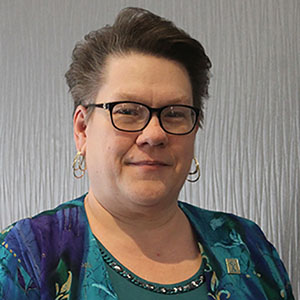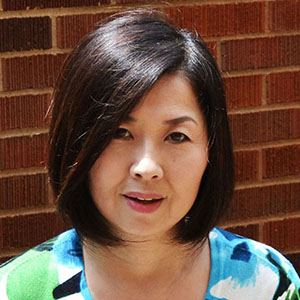Welcome to the University of Oklahoma's Anne and Henry Zarrow School of Social Work Ph.D. program. Our mission is to cultivate scholars who will generate and share innovative knowledge about social work interventions, programs, and policies aimed at promoting social justice and improving the quality of life for vulnerable populations.
Overall, the Social Work Ph.D. program aligns with the University of Oklahoma's mission by providing an excellent educational experience through rigorous teaching, fostering research and creative activity, and preparing graduates to serve the state and society by addressing critical social issues and promoting social change through scholarship, leadership, and community engagement.
Welcome to the University of Oklahoma's Anne and Henry Zarrow School of Social Work! We are thrilled that you are considering our Doctor of Philosophy (PhD) in Social Work program, a pivotal step in advancing your academic and professional journey.
At a time when the world urgently needs compassionate, innovative, and dedicated social work scholars, we believe there is no better moment than now to pursue your doctoral education. And there is no better place than the University of Oklahoma to do so.
The Right Time
Our world faces unprecedented social challenges. From systemic inequalities and social injustices to the ongoing need for effective social policies and interventions, the demand for skilled social work professionals has never been higher. Our PhD program is designed to equip you with the advanced knowledge and research skills necessary to address these pressing issues head-on.
We are pleased to offer limited competitive funding packages to support exceptional applicants. These packages provide financial support designed to help students dedicate themselves fully to their doctoral training.
The Right Place
The Anne and Henry Zarrow School of Social Work is a vibrant and dynamic community committed to social justice and improving the quality of life for vulnerable populations. Our program offers a comprehensive curriculum that aligns with the University of Oklahoma's mission to provide an excellent educational experience, foster research and creative activity, and prepare graduates to serve society through scholarship, leadership, and community engagement.
The Right Training
The overall curriculum and major curricular components of the Social Work PhD program provide students with the knowledge, skills, and experiences needed to excel in social work scholarship, research, teaching, and leadership.
We invite you to join us at the University of Oklahoma, where you will become part of a legacy of excellence and innovation in social work education. Together, we will advance social justice and make a meaningful impact on our communities and beyond.
Warm regards,
Anthony P. Natale, PhD, MSW
Ph.D. Program Director
University of Oklahoma Anne and Henry Zarrow School of Social Work
The PhD Program Handbook is a comprehensive guide for students in the PhD in Social Work program at the Anne and Henry Zarrow School of Social Work. It outlines key program requirements, academic policies, and opportunities for professional development. Highlights include:
o Program Structure: Core coursework, specialization electives, and advanced research methods delivered synchronously via Zoom.
o Graduate Research Assistantships (GRAs): Stipends, health insurance, and tuition remission for eligible students.
o Comprehensive Exams and Dissertation: Clear guidelines for exam preparation and dissertation completion.
o Professional Development: Opportunities for teaching, conference presentations, and faculty-led research.
o Specialization Electives: Advanced courses taken outside of Social Work based on research interests.
o Financial Information: Details on fellowships, travel support, and assistantships.
The handbook is an essential resource for understanding the program and planning for success.
Required Coursework:
40 hours plus a minimum of 5 Dissertation hours.
Program Duration:
Typically completed within 4 to 6 years, with a maximum of 7 years.
Enrollment Requirements:
Full-time status requires enrollment in 10 hours per semester. Part-time status requires enrollment in 6–7 hours per semester.
Course Distribution:
Comprehensive Examination:
Includes Literature/State of the Science Report, Qualitative Research Proposal, and Quantitative Research Proposal.
Dissertation Requirements:
1. Comprehensive Theoretical Understanding: Gain an in-depth understanding of various theoretical frameworks and concepts essential to social work practice and research.
2. Advanced Quantitative Skills: Acquire proficiency in quantitative research methods, including data collection, analysis, and interpretation.
3. Qualitative Research Proficiency: Develop advanced skills in qualitative research methods, focusing on data collection, analysis, and interpretation.
4. Pedagogical and Methodological Expertise: Critically analyze and apply social work pedagogy and methods in both academic and practice settings.
5. Advanced Data Analysis: Master advanced quantitative data analysis techniques and statistical methods.
6. Qualitative Data Analysis Techniques: Hone skills in qualitative data analysis techniques such as thematic analysis, narrative analysis, and grounded theory.
7. Professional Development: Engage in ongoing professional development through participation in Professional Social Work Seminars.
8. Specialization Opportunities: Select elective courses to specialize in specific areas of social work research or practice.
9. Advanced Statistics Competence: Demonstrate comprehensive knowledge in an advanced statistics or methods elective.
10. Comprehensive Exam, Dissertation Proposal and Defense: Successfully propose, develop, and defend a comprehensive exam proposal and a dissertation that integrates knowledge in the field of social work, and presents a significant contribution to the field.
The program follows a one-year full-time and second-year part-time structure, with all courses during this period delivered synchronously via Zoom. Beyond the second year, students’ course schedules are determined by their individual education plans and may include a combination of instructional formats. These formats can include synchronous Zoom sessions, asynchronous online coursework, and face-to-face classroom instruction. This flexible approach is designed to support a variety of learning preferences and accommodate diverse academic and professional goals.
| Year and Semester | Part Time (4-7 hrs) | Full Time (10 hrs) |
| Fall Year 1 |
|
|
| Spring Year 1 |
|
|
| Summer Year 1 |
| |
| Fall Year 2 |
|
|
| Spring Year 2 |
|
|
| Summer Year 2 |
| |
| Fall Year 3 |
|
|
| Spring Year 3 |
|
|
| Summer Year 3 | ||
| Fall Year 4 |
|
|
| Spring Year 4 |
|
|
| Summer Year 4 | ||
| Fall Year 5 |
|
|
| Spring Year 5 |
|
|
| Summer Year 5 | ||
| Additional up to Year 7 |
|
|
Part-Time Study:
Students pursuing part-time study will work with the PhD Program Director to develop a customized course sequence over two years, ensuring alignment with their academic and professional goals.
Specialization and Advanced Methods:
After completing the required Social Work courses, students enroll in Specialization Electives and Advanced Quantitative and Qualitative Methods courses from departments outside of Social Work, and their schedules will depend on course selection.
Thank you for your interest in the PhD program at the Anne and Henry Zarrow School of Social Work at the University of Oklahoma. While applications are not open yet, read on to learn more about the application process, which will be through the Graduate School's website.
1. Graduate School Online Application:
Submit the online application along with application fee paid at the time of submission.
2. Official Transcripts:
Upload scanned versions of official transcripts from all previous undergraduate and graduate coursework with your online application.
3. Employment History:
Submit a resume or curriculum vitae detailing your employment history.
4. Professional Statement:
Upload a well-edited 7–10 page document introducing yourself to the Ph.D. committee. Answer all of the following questions within the application using the headings provided below to differentiate your answers:
5. Writing Sample:
Upload a writing sample that demonstrates your abilities (e.g., papers from your master’s program, professional reports, literature reviews, co- authored papers, case summaries). If submitting a co-authored work, include a document explaining your specific contribution.
7. References:
Provide the names and email addresses of three references. Ensure letters of recommendation are received before your application can be reviewed. Strong recommendations typically come from faculty or professionals with higher-level graduate degrees who have supervised your work.
8. Interviews:
Zoom interviews lasting approximately 45 minutes will be scheduled with final candidates.
9. International Applicants:
International applicants must also submit TOEFL scores. For additional information, please refer to the Admissions for International Students page on the Graduate School’s website.
Students enrolled in the Doctor of Philosophy (PhD) program at the University of Oklahoma, Anne and Henry Zarrow School of Social Work, benefit from robust funding support:
Tuition Support: Competitive and limited Graduate Research Assistant (GRA) positions are available to PhD students in good standing. These positions provide a tuition waiver, a monthly stipend, and student health insurance in exchange for 20 hours of work per week as a GRA. Per Graduate College practice, students employed full time are not eligible to hold a 20-hour-per-week GRA.
Graduate Assistantships: Opportunities include roles as Graduate Research Assistants (GRA) or Graduate Teaching Assistants (GTA), with a 50% appointment. These competitive positions provide a stipend alongside tuition support. Higher appointment percentages and fellowships are occasionally available, often tied to research centers or projects.
Research Funding: Students engage in faculty-led research projects across various fields, leveraging their interests to access additional funding opportunities.
Teaching Opportunities: Many students gain valuable teaching experience as GTAs, or instructors or record in face-to-face and online courses supported by mentorship to enhance their pedagogical skills.
External Fellowships: Candidates are encouraged to pursue external fellowships to supplement their academic and research endeavors.

Email: lbyers@ou.edu

Email: lfranklin@ou.edu

Email: bgoodwin@ou.edu


Email: chellman@ou.edu



Email: crmiller@ou.edu

Email: jmcribbs@ou.edu


Email: anatale@ou.edu


Email: angela.b.pharris-1@ou.edu